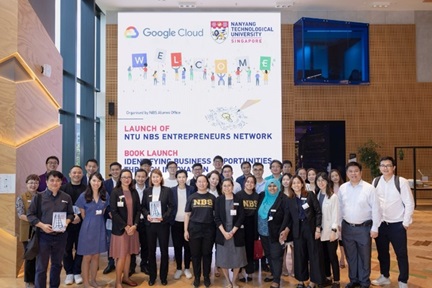Commentary: Equal opportunities in the workplace: For better or worse?
Asst Prof Chong Sinhui discusses what the paper means for gender equality and how it will shape Singapore’s society and economy in the years ahead.
The recent White Paper on Singapore women's development highlighted the benefits of promoting equal opportunities in the workplace.
But on the flip side, are some of the policies proposed and debated in Parliament - from flexible work arrangements (FWAs) to parental leave and board representation - really advantageous for women at work? Do they propagate the impression that women require special concessions to succeed?
Research has uncovered the shadows that lurk behind the pursuit of gender equality.
FWAS and Parental leave
Studies in Canada have shown that when a company offers women a flexi-work option of staying engaged in their jobs while on extended, unpaid maternity leave, women who take up the option are viewed as being more committed and more hireable than those who do not.
In the local context, I conducted a focus group with 15 Singaporeans in December last year on issues relating to performance appraisals during work-from-home arrangements.
When asked whether one's family or personal situation should be taken into consideration during performance appraisals, participants in both managerial and non-managerial positions generally expected employees to overcome such adversities on their own and to perform up to standards.
These findings are perhaps unsurprising because they are aligned with our meritocratic beliefs that people have control over their resources and can succeed as long as they work hard.
In one of my other research studies, 118 Singaporean employees working from home completed a survey each day over 10 consecutive workdays in December last year.
The results showed that employees with children at home reported greater distractions from performing their work. On days when their personal responsibilities got in the way of their work, they received more rude and petty treatment from their co-workers, and experienced greater burnout by midday.
These findings imply that employers may start treating FWAs as a licence to intrude into their employees' personal domain.
FWAs could also lead to the unrealistic ideal that women should be able to excel when simultaneously juggling both their work and personal responsibilities, now that they enjoy concessionary FWAs and leave entitlements.
A form of tokenism?
There are different ways to increase women's representation in leadership positions. Some countries or companies employ a straightforward practice of proactively selecting a female candidate over a male candidate, once both of them meet the qualifying criteria.
In one of my studies on Singaporean undergraduates' sentiments towards such practices, participants had to read a hypothetical scenario and rate their perceptions of it. The scenario contained two key points: that females are under-represented in student leadership positions, and a female student was selected as the leader for a new school club.
When we told students that the hiring committee proactively selected females over males once they showed equal credentials, the students perceived the new female leader as less capable and were more reluctant to work with her, compared with when we told them that the hiring committee removed gender-identifying information of all candidates prior to selection. This effect was especially prominent in participants who held strong meritocratic beliefs.
The findings suggest that people may start viewing women as token representatives who are promoted perfunctorily, rather than meritoriously, to meet the gender ratio stipulated by the Government, if Singapore moves towards formalised, quota-based gender equality policies.
Recommended actions
Singapore is at a nascent stage of developing formalised workplace infrastructures and procedures for supporting gender equality. Hence, there is a need to exercise due diligence when executing these action plans. Managers and companies can consider the following actions:
• Exercise empathy and recognise family or personal responsibilities as a legitimate part of employees' lives.
• Engage in open conversations on how employees are juggling both work and personal demands, then periodically evaluate and modify FWAs to better meet both employee and company needs.
• Develop a socially inclusive culture where co-workers can openly negotiate their work roles and requirements with one another, to foster a supportive network.
• Ensure that employees who are non-beneficiaries, such as men or single employees, do not feel persistently victimised or burdened by gender equality policies. They should also enjoy equitable access to FWAs and leave entitlements.
• Develop appraisal schemes with clear performance indicators and wage information for employees utilising FWAs, to reduce role ambiguity and to ensure fairness to other employees.
• Offer objective and justified accounts of women's achievements as they get promoted to leadership positions, to prevent others from viewing female leaders as being promoted without merit.
Rewiring our understanding of gender equality
Contrary to what its name suggests, equality is not about applying the same rules equally and indiscriminately across genders.
Instead, it is about recognising the unique biological and socialised challenges that each gender faces, then developing steps and actions to address them so all genders can optimise their potential and complement one another.
It also requires the commitment of all parties involved, including men.
Research in the United States has shown that men feel threatened and victimised by pro-women gender inclusion plans. Hence, future conversations on women should also assess how men are responding to such plans, and ensure that their voices are heard.
Just a little more than two years ago, we lived in a different world where it was almost impossible to visualise a workplace where the majority of employees would be working from home. Covid-19 has upended these norms.
In the same way, there will some initial discomfort with elements of the White Paper.
Like all new policies, there will be a need to continually evaluate the action plans and engage the relevant parties in future conversations.
Chong Sin Hui is an assistant professor of organisational behaviour and human resources at Nanyang Business School. She conducts research on how individuals optimise their well-being and productivity as they manage their professional and personal identities.
Source: The Straits Times




